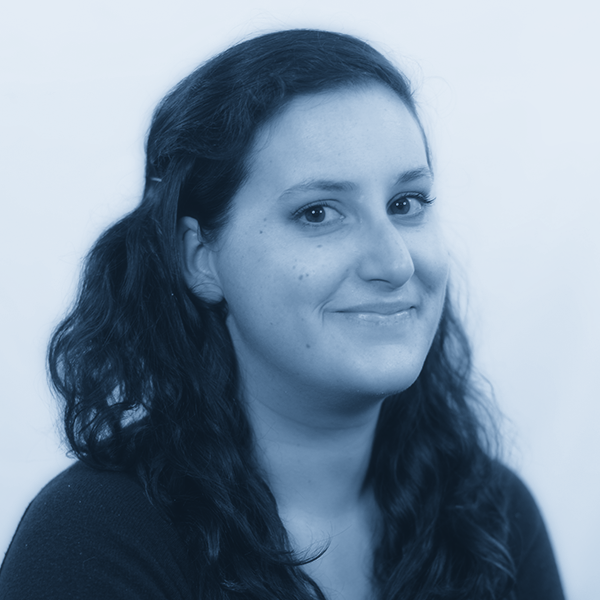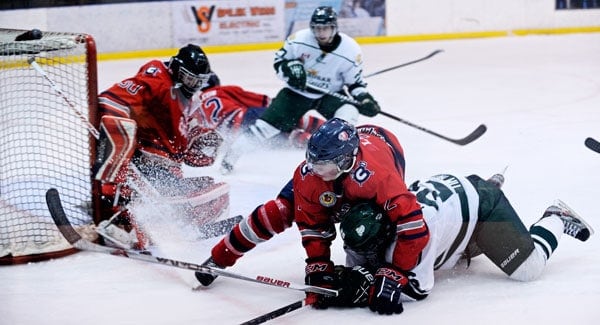Wellesley’s mayoral and councillor hopefuls met on Tuesday evening for a friendly debate, much of which focused on the need for more parkland in the township.
Roughly 75 people filled the Wellesley Community Centre to hear brief summaries of the candidates’ platforms, followed by prepared questions and queries from the audience.
Mayoral candidates Paul Hergott, Joe Nowak, and Jim Olender took the bulk of the heat, answering questions on development, bylaw enforcement and taxes.
Olender said his perspective on growth and development is very simple.
“We have to look at our township with some longer-term perspectives,” he said. “The first thing I think we have to consider is strategic investments at both the recreational lands and employment lands. Leisure and recreation are even more important to us now than they were 20 years ago.”
Nowak said growth and development need to be looked at according to the different communities. Linwood and St. Clements have both faced declining populations over the past decade, resulting in the latter losing its grocery store and LCBO outlet.
“Wellesley on the other hand has experienced rapid residential growth,” Nowak said. “And as a result the early learning centre is at near capacity, the health centre has a waiting list, numerous additions have been made to the school, and there is a shortage of lands. I think moving forward we must dedicate more land for parks and recreation.”
Paul Hergott said council is limited to increase growth in the township because they’re running out of development lands and need to become self-sufficient for the future.
“As far as cash in lieu of land, I feel a mistake was made in the past and therefore there is no land left for recreational purposes,” Hergott said.
Ward 1 candidates are Murray Frey and incumbent Shelley Wagner. Wagner was not at the meeting. Incumbent Herb Neher and Butch Voisin are vying for the Ward 2 spot. Peter van der Maas and Andrew Brenner are up for Ward 3. And Ward 4 is being challenged by Brian Cunningham, Gord Doehn, Andrew Epp and Carl Smit.
An audience member questioned what each mayoral candidate would do in terms of bylaw enforcement, as the one bylaw officer only works during weekdays. Hergott said a couple of weeks ago the police and service groups visited council and said they were more than willing to sit down and talk with everybody that wants to get involved to come up with a plan.
Olender said the future council should be able to put that discussion into motion.
Nowak said when he was on council they did fine with a part-time bylaw officer, and doesn’t think the township’s growth warrants another bylaw officer.
The audience also asked what the mayoral candidates would do in terms of green spaces.
Olender said they’re very limited in what they can do for green spaces. The only way they’re going to acquire more green spaces is if there is development that requires parkland a condition to proceed.
“It’s unfortunate, but that’s the way it is at the moment,” Olender said.
They were also asked to give their assessment of the current council. As the only mayoral candidate not currently on council, Nowak said he was impressed with their fiscal responsibility, but disappointed with the decision to hire a consultant to hire a new CAO, which cost $20,000.
“I believe that position should have been posted internally,” Nowak said. “It would have sent out a much better message to staff of the township. I feel also that council has not done a good job communicating with volunteers and stakeholders, as witnessed with the issues around the skateboard park. Stakeholders’ concerns were not addressed, putting the whole park at risk.”
When questioned about taxes, all candidates agreed the township didn’t currently have a need to raise them. Hergott said they will be determined by what the residents want for services. Nowak said the township has never been in a better financial position. Olender said council has tried to keep taxes around the inflation rate, but failing to keep pace with a tax freeze would put the township in a bad spot.
Ward candidates gave their thoughts on the biggest issues facing council.
Smit said the pending closure of the transfer station is his main concern and they need to work with regional and township staff to get things back on track.
Epp’s concerns centered on health and safety. He said planning is important instead of “throwing money at problems.” He also wants to see Lobsinger Line become safer for drivers, cyclists and horse-drawn buggies.
The biggest challenge Doehn sees the next council facing is maintaining consistency to the constituents, while controlling expenditures.
Cunningham echoed the need to spend within their means, but also to be vigilant in protecting local agriculture and infrastructure.
According to van der Maas, council will have a large issue to deal with over the next four years, in regards to an analysis done by the Region of Waterloo identifying weaknesses that are preventing the region from developing economically, such as communication and cooperation.
Brenner is concerned with “unnecessary economic development in Wellesley. He said many people, like his family, moved to the area because they don’t want to live in a big city, and those rights need to be respected by developers.
Obtaining our fair share of funds is something Voisin is concerned about. He said council needs to be accountable and have strong representation at regional council.
The new council will need to analyze township departments line by line to help maximize the residents’ tax dollars, according to Frey.
Neher emphasized the notion that bigger is not always better. He sees an ongoing issue as balancing growth, while maintaining agriculture and the small-town spirit.
Along with voters in municipalities across the province, Wellesley residents go to the polls October 27.









